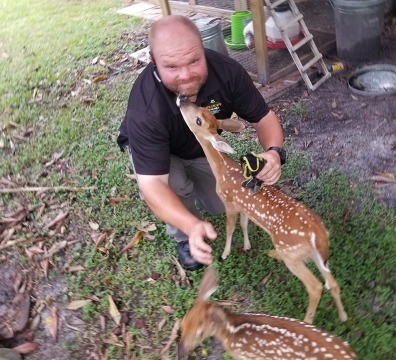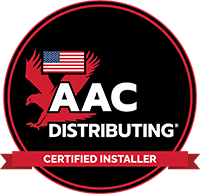Tampa Feral Pigs Control
Until the mid 1900s the keeping pigs open range and only rounding them up when you needed to was common. After that open range methods became illegal. Many pigs still escaped and joined others in the wild. They are by now well entrenched. The swine considered wild pigs are of three types. The 1st is farm pigs that have escaped. The 2nd are Eurasian Wild Boars. The 3rd is a hybrid of the other two. When the word feral is used it technically means domestic stock that escaped. However most wild pigs in Florida are often called feral pigs no matter what their origin. They can breed year round but the fall and spring are the most common times. They can have 2 litters a year and each will have about 5-7 young.
Wild pigs are animals with short legs and stocky in build. They can be up to 200 pounds, 3 feet high at the shoulder, and up to 6 feet long. There are recorded larger wild hogs than this but these are unusual. The males are longer and heavier than the females. Also those descending from the Eurasian Boar are larger than those from domestic stock. Those that come from Eurasian Boars have longer bristles and hair, they will be taller and leaner. They also have longer snouts, smaller ears, and longer straighter tails. Feral pigs have black, white, or brown hair in either solid or a mottled pattern. They have 4 tusks, 2 in the upper and 2 in the lower jaws. These tusks are sharpened when they rub each other.
Wild Pig Trapping
The feral pigs communicate through vocalizations, many are similar to the domestic pig. They also have an alarm grunt. They do tend to be in herds so if one pig sees a danger the alarm grun will let the herd know of the danger. The feral pigs have great senses of smell and hearing. Their vision is not as good. So in addition to sounds they will put scents on trees by rubbing or tusking. They can actually cause some damage to trees by removing too much bark exposing the tree to insects and diseases.
Feral pigs prefer fresh water marshes, palm hammocks or pine flat woods but can be found in many habitats. They need to wallow to keep them cool in the warm Florida weather and to reduce the insects that bother them, like fleas, lice, and ticks. So they prefer wetter land and well drained areas will keep the pig population lower. Proper fencing can be used for yards that are not too enticing or garden areas.
Feral pigs are omnivores. They will eat anything both plants and other animals. They especially enjoy acorns and hickory nuts but also like to eat plums. When these are not available they will eat worms, insects, small birds, fish, grass, plant stems, roots and tubers. They are a bit lazy and will go for the easy foods. Because of this tendency they will eat more plants and farm crops are susceptible. They root their snouts into the ground to find food. This will do damage to the ground cover and it may even have a recently plowed appearance.
On private land they can be trapped or hunted. Hunting can be done on private property with the owner’s permission. The weapons used must be legally owned but no hunting license is needed. Other hunting opportunities, like in Wildlife Management Areas, exist but will have regulations that must be followed. No toxicant or repellent has been registered for use with wild pigs. Feral pigs on private property can be trapped using acorns or corn as bait. Baiting the trap with the trap locked open for a few days, prebaiting, will make the wild pigs more likely to enter the trap. Leg hold or snare traps can be used but cage traps or corral traps can capture more than 1 feral pig. Consider calling a wildlife removal expert because they will have access to the proper traps and will be able to deal with the removal of the feral pigs. Trapped feral pigs can not be released on public land or other private land without the owner’s permission.







